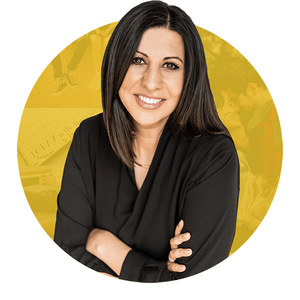Do You Have Too Many Opposite-Sex Friendships?

In this week's blog, Licensed Professional Counselor Debra Fileta discusses how to evaluate the diversity of your friendships and shares what a healthy balance of opposite-sex friendships should look like.
If you are in a relationship, or even looking to be in a relationship, it is important to evaluate the health of your opposite-sex relationships. Do you have too many friends of the opposite sex? Do you have healthy boundaries within those friendships? Here are four important questions to ask yourself in order to better understand what role opposite-sex friendships play in your life:
Do I feel more comfortable with the opposite sex?
It is helpful to ask yourself this question when beginning to understand the impact of opposite-sex friendships in your life. If you feel a lot more comfortable with the opposite sex, there may be a root issue. Explore the reasons why you have so many opposite-sex friendships; understand where the comfort comes from and find out why you are lacking the same feeling of comfort in your same-sex friendships. Same-sex friendships, male-male and female-female, are important relationships to uniquely enrich personal growth and foster well-rounded and healthy individuals.
Does my relationship with my mom or dad have anything to do with why I am more comfortable with the opposite sex?
The strong need to connect with the opposite sex can emanate from an unhealed wound with your parent. Do you bond with the opposite sex because it is easier and more comfortable? Or maybe because there are fewer wounds there? For you, it might be because of a complicated relationship with one or both of your parents. If so, this deep-rooted issue doesn’t automatically go away in marriage or when you commit to exclusivity with your spouse. You may need to put a lot of work in to find healing in those wounds to create healthy boundaries with the opposite sex.
Are my opposite-sex relationships affecting the exclusivity of my (future) marriage?
Is it wrong to have more opposite-sex friendships than those of the same sex? No, it is not wrong. But take a deeper look into your own relationship and friendships. If you continue the same interactions with your opposite-sex friendships when you are married, it could become problematic. I say this because as your relationship progresses into a marriage, the boundaries and dynamics change. As a married couple, a lot of the trust that is built between the two of you comes from exclusivity, meaning that you will be with your spouse, and only your spouse, for the rest of your life.
What is the Lord telling me about this area of my life?
God intentionally places things on our hearts; He makes no mistakes. Maybe you feel like God has put this on your heart or maybe it has been there for a while and is weighing heavily on you. In all cases, it is important to open your heart, soul, and mind and listen to what God is asking of you. It may be that God is affirming that this is an area of growth in your life. Seek God’s guidance and authority in both your opposite and same-sex friendships. When you are actively seeking God, your relationships will grow stronger, and you may find healing where wounds are present now. God also uses healthy same-sex friendships to bring healing to parts of you that need to be healed and to bring comfort to you where it lacks in your same-sex friendships now. It is important to remember that not all opposite-sex relationships are unhealthy or problematic. But understanding the role of opposite-sex relationships in your life may help reveal deeper personal issues.
What are practical next steps for you?
Whether it is restoring broken parental relationships, healing open wounds, or learning how to break away from unhealthy codependency, take the time to reflect on what God may be placing on your heart. Prioritize your personal health and growth, because, in the end, your relationships are a reflection of your wellbeing.
Click here to listen to the full podcast about the balance of opposite-sex friendships!




